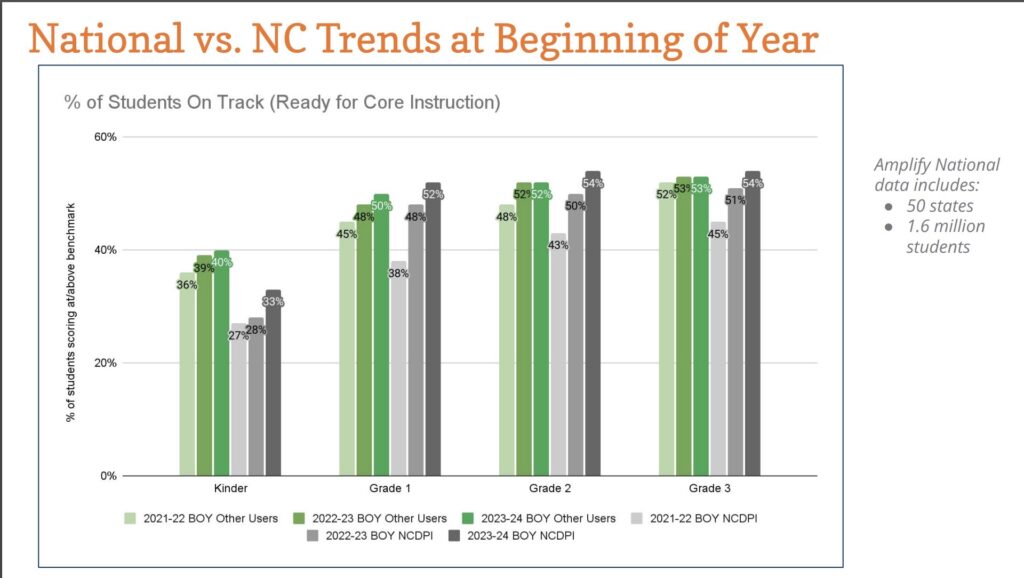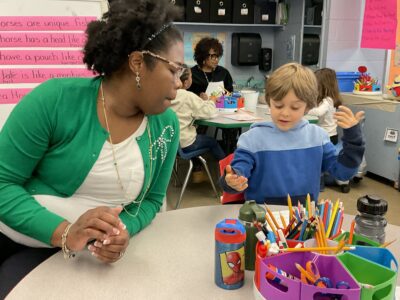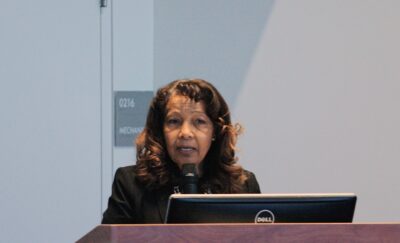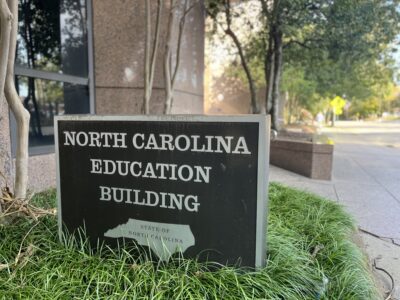
|
|
The State Board of Education met last week for their last meeting of the year. At the meeting, the Board approved computer science as a graduation requirement, approved the Parents’ Guide to Student Achievement and heard a report on beginning-of-year reading proficiency for early elementary students.
Early-grade reading
The report on reading proficiency, which as submitted to the General Assembly, looked at the proficiency scores of North Carolina’s kindergarten through third graders. The report found that the percentage of students whose scores show they were on track for their grade level at the beginning of the school year has increased in each grade every school year since 2021-22.
The testing was conducted using Dibels 8, a set of short proficiency screening tests. Dibels 8 allows educators the chance to identify students’ needs and learning gaps while also monitoring progress. The testing covered 434,200 K-3 students with a 96% completion, according to the report.
At the same time as the Dibels 8 assessment was being used, North Carolina teachers were also beginning training in Language Essentials for Teachers of Reading and Spelling (LETRS), a two-year professional development program to help guide teachers and provide resources for promoting literacy.
“LETRS and DIBELS are both based on the science of reading, and the improvements in our benchmark scores are the result of North Carolina’s incredible teachers and students putting that science into practice,” State Superintendent Catherine Truitt said in a press release. “The fact that we continually see a steady increase in reading proficiency before the LETRS initiative is even fully implemented is astounding. This shows that when we invest in research-based professional development for North Carolina teachers, they produce results.”
The findings show that during the 2021-22 school year, the percentage of K-3 students in N.C. at or above proficiency for their new grade was lower than the national average. For the 2023-24 school year, the percentage of students on track for the new school year was higher than the national average in each grade except kindergarten.
“We have much to celebrate, but we must also focus on supporting the children who have not quite caught up,” said Amy Rhyne, director of the Office of Early Learning at the Department of Public Instruction. “With the LETRS learning approaching full implementation and as teachers continue to differentiate their instruction based on individual student needs, we expect these numbers to keep improving.”

Raising the drop out age, and charters
The Board also reviewed a report to be submitted to the state legislature on a pilot program to raise the high school dropout age from 16 to 18. The report looked at the program’s impact between the 2020-21 and 2021-22 school years.
The pilot program began in the 2015-16 school year with Hickory Public Schools and Newton-Conover City Schools. Two additional districts joined the program in 2017: McDowell County Schools and Rutherford County Schools.
Between 2020-21 and 2021-22, Newton-Conover City Schools and Rutherford County Schools saw a decrease in dropout rates, but both McDowell County Schools and Hickory Public Schools experienced an increase in dropouts. During that same time, the state dropout rate also increased.
All districts in the pilot program reported increased short-term suspension rates between 2020-21 and 2021-22.
Between 2020-2021 and 2021-2022, the state graduation rate fell, along with the graduation rate in all four districts in the pilot program.
Karen Fairley, executive director of the Center for Safer Schools, read recommendations to the board based on the findings, which included increasing communication with the judicial system and social services, identifying strategies of educational institutions with the largest three-year decreases in dropout rates without raising the dropout age, and increasing the age for compulsory attendance to 18 rather than 16.
“Further explore (the) ramifications of attendance issues as (the) main reasons listed by school for student dropout,” Fairley said.
HB 206, which was introduced during the long session but did not advance, would have raised the dropout age by a half year each calendar year until the dropout age reaches 18 in the 2027-2028 school year.
You can find Fairley’s full presentation to the Board here.
The Board heard appeals from the Charter Schools Review Board regarding two charter schools: the proposed Heritage Collegiate Leadership Academy in Wake County and School of the Arts for Boys Academy (SABA).
The Board voted to close SABA, taking away its charter, and nixed the plans for the Heritage Collegiate Leadership Academy in Wake County.
The Charter Schools Review Board was formed earlier this year after Session Law 2023-110, which called for such a review board to oversee and monitor charter schools, jobs once held by the State Board of Education. These hearings were the first actions of the newly created appeal subcommittee of the new board.
Other things to note
- The board approved computer science courses as a requirement for graduation. This came after the state legislature passed a law this year mandating that computer science be a graduation requirement.
- The board voted to approve policy amendments from Session Law 2023-134 that would remove effectiveness data as a requirement for out of state educators with licenses with three or more years of experience. Educators will also be able to renew Limited licenses within three years at the same public school unit.
- The Board reviewed a report on the cost and status of a study on carbon monoxide and radon testing in schools.
- The Parents’ Guide to Student Achievement passed the board unanimously. This guide will be provided to parents, students, and school personnel at the start of school years to provide information on policies and resources.
Recommended reading




